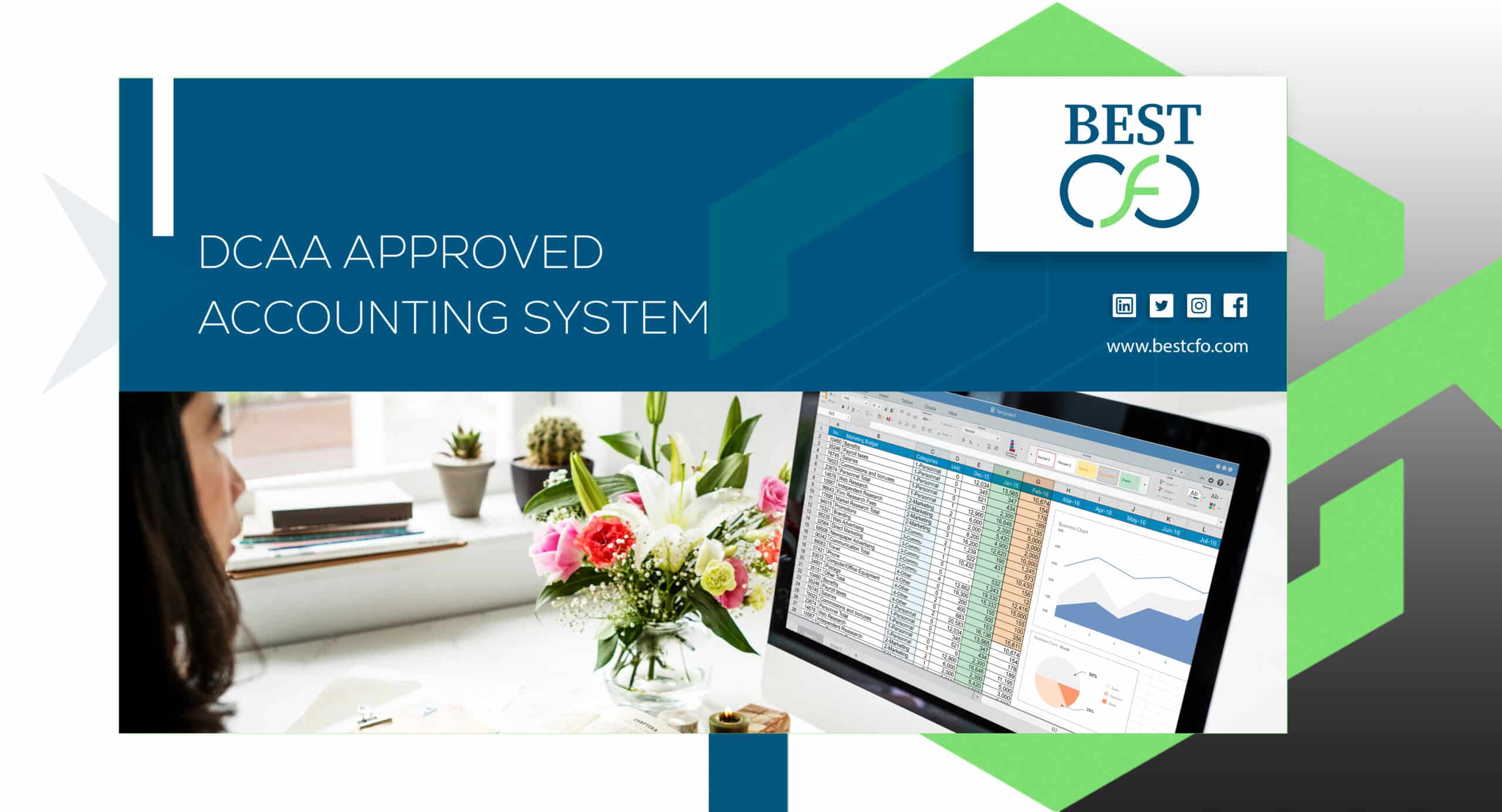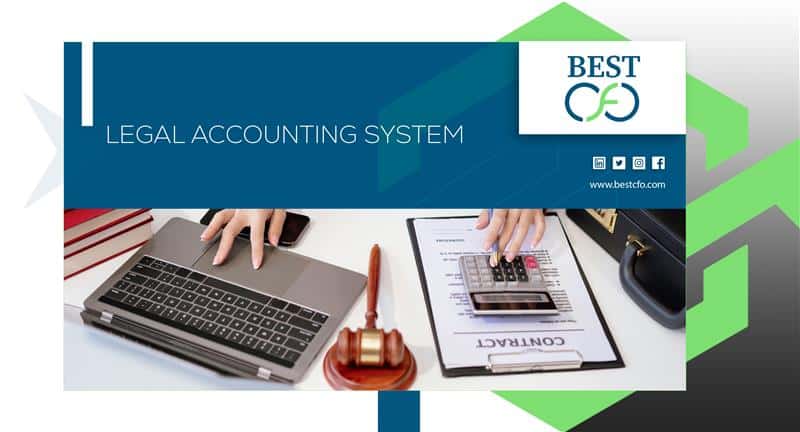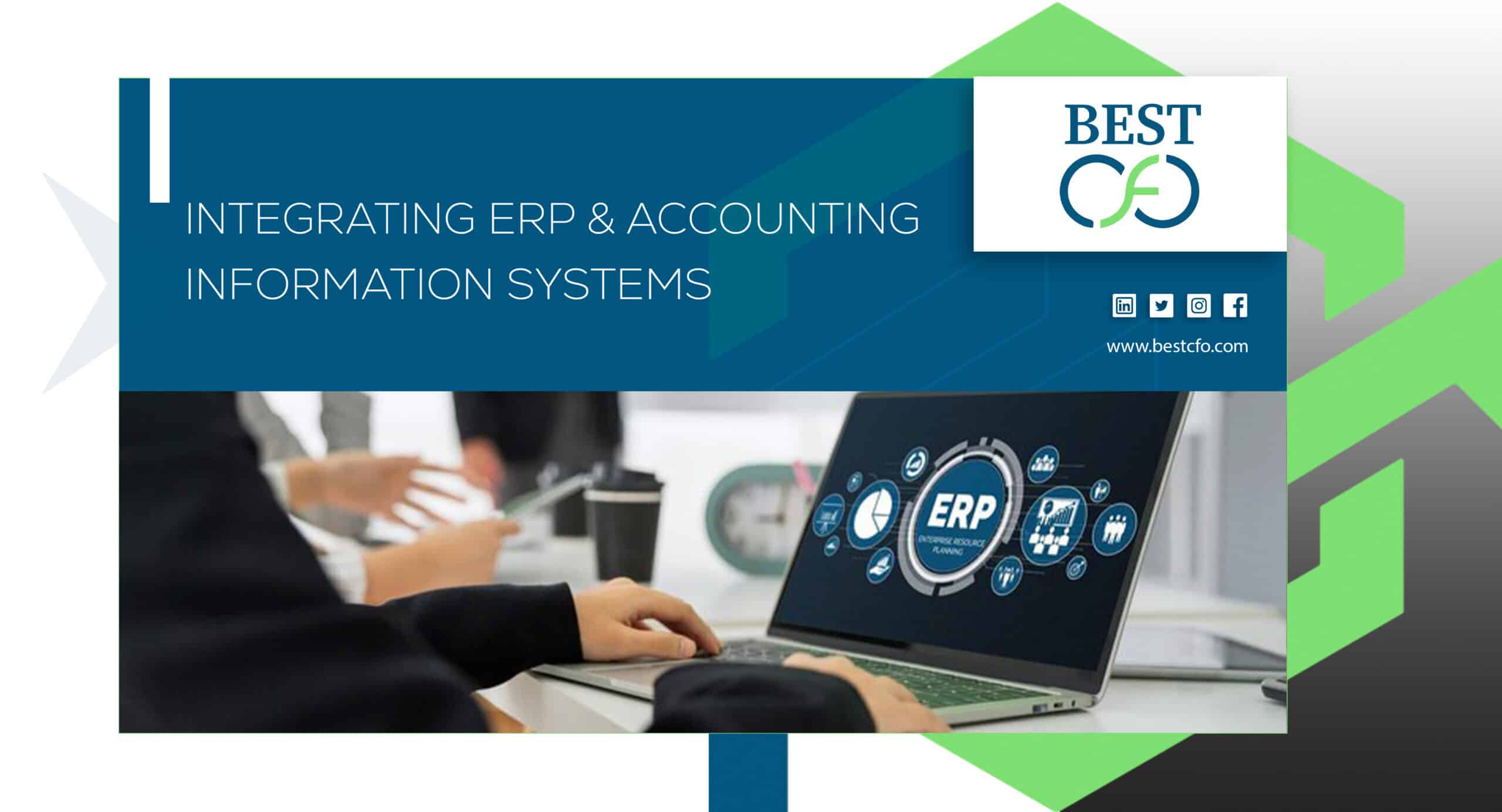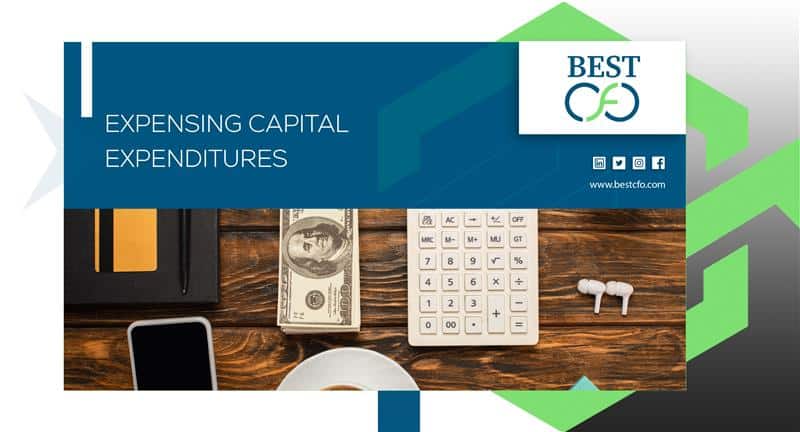
|
Getting your Trinity Audio player ready...
|
Expensing Capital Expenditures: Understanding Deduction and Expensing
Capital expenditures illustrate the investments that are made by a company for functions like acquisitions, upgrades, and maintaining physical assets like property, workspace, technological equipment, etc. These are the types of expenditures that are important for a business to function correctly. This helps them to sustain improvement in terms of functionality, efficiency, growth, etc. In order to maintain a competitive edge over other companies in the same industry, they need to manage this aspect well. This is, however, a tricky task and requires a grasp of the topics of accounting and financial strategies that involve a lot of technicalities.
Understanding Expense Capital Expenditure
Capital Expenditure, also known as CapEx, incorporates the following functions:
- Obtaining machinery and equipment
- Construction or renovation of buildings
- Acquisition of licenses
- Investing in technological infrastructure focused on improvement
Accounting in terms of Expensing Capital Expenditure
A proper accounting of expense capital expenditures includes:
Identifying and Understanding Capital Expenditures
You must know that not all expenditures are eligible to be in the CapEx category. You must capitalize them as capital expenses; they must be:
- These expenditures must have provided benefits for more than a single accounting period.
- They must enhance the value, efficiency or lifespan of any current asset.
- Formulation of a new asset that produces an economic value.
Now that these expenditures have been identified, you need to record your spending as an asset on your balance sheet instead of recording it as an expense on the income statement. The cost is then allocated throughout the asset life by:
Depreciation for tangible assets like machines and other equipment used in the workspace
Amortization for intangible assets like licenses and accounting software renewals
A business can also opt to have multiple deduct methods that depend on their tailored financial strategy and compliance criteria:
A straight line depreciation allocates the cost evenly over the assets life, declining balance enhances the depreciation process for higher expense in the initial fiscal year. Lastly, the units of production method depreciates based on an assets usage or output.
Tax Deduction and tax deductible in terms of investment
CapEx is not deductible immediately. Depreciation and amortization provide taxpayer benefits over the course of time. There are certain limitations and jurisdictions that provide accelerated depreciation for some rare assets that are environmentally friendly equipment.
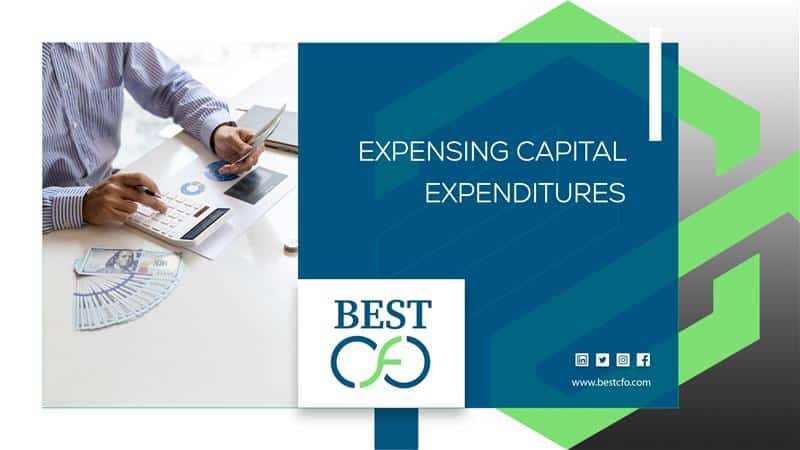
Section 179 and Bonus Devaluation
Businesses in the United States have certain flexibilities. For instance, section 179 provides the immediate expensing of making assets eligible up to a specific limit. Bonus depreciation incurs faster depreciation for eligible holdings by up to 100% in the first year.
Furthermore, when a capital asset has been qualified to be sold, the total difference between its sale cost and tweaked book value provides capital gain or loss that affects specific tax cuts and job acts.
Financial Understanding of Capital Expenditures
Before obtaining an expensed capital expenditure, a business must evaluate the potential return on investment (ROI) by the following:
- This involves showing cash flow statements that are produced by your investment
- Contrasting between the net present value of expected returns to an initial cost
- Estimating the internal rate of return for finding profitability
Expensing capital expenditures requires the association of financial forecasts with the company’s financial strategy. A business must, however:
- Determine clear aims and objectives for asset-obtaining
- Evaluate the persisting expenditures to avoid budget overruns.
- Consistently review and tweak forecasts according to the market conditions.
Risk Management
Investments of capital assets usually incorporate risks like:
- Risk of technology getting obsolete
- Low market demand rate due to a reduction in the value of an asset
- Maintenance of costs associated with initial costs.
Real-time challenges and their solutions
Expensing capital expenditures often brings the need for immediate cash flow. However, a company can get a balance by:
Getting their investments in line with their strategy-based priorities or getting flexible financing options for leases and loans.
Furthermore, make sure your business data is accurate and there is no misclassification or inconsistency that can affect the financial statements. To resolve any similar pertaining issues:
- Have a detailed record of your asset costs, depreciation intervals, and expense of maintenance
- Perform timely audits through the Internal Revenue Service to confirm and verify asset values throughout their useful life.
Upcoming trends in terms of capital expenditures
With the advancements in the digital world, businesses are quickly allocating expensing capital expenditures in the form of cloud computing technology, artificial intelligence, and automation endeavours.
There are also environmental, social and governance factors that are important in shaping and expensing capital expenditures in terms of research and development.
Conclusion
Conclusively, managing and expensing capital expenditures is vital for businesses in terms of growth and financial stability. By staying in compliance with accurate accounting practices, having flexibility in terms of tax benefits and having a detailed inspection of your business expenses like cash flow and balance sheets, a business can enhance the value of their investments and reduce the risks simultaneously. Market technologies change; therefore, staying with the latest technology has become mandatory for businesses in making the best expensing capital expenditures for long-term success.
Related Posts
DCAA-approved accounting system: Everything you need to know
DCAA-approved accounting system: Everything you need to know When your business firm is shortlisted for…
Legal Accounting System and its features: All you need to know
Legal Accounting System and its features: All you need to know Are you looking to…
ERP Accounting Systems and How Your Business Can Benefit From Them.
ERP accounting systems and how your business can benefit from them Finance firms are always…
Optimizing Accounts Payable with Automation
Due to technological advancements in the field of finance, an ever-increasing number of transactions are…
 Demos
Demos  Colors
Colors  Docs
Docs  Support
Support 



